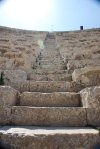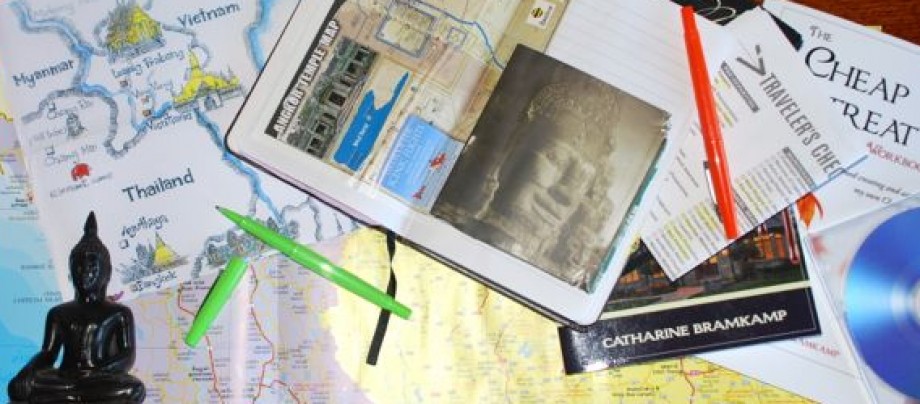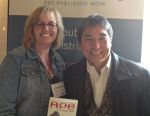I now have seven Beta Readers. Lest you think, well, that’s not very many early readers, I remind you that I will be receiving feedback from seven different sources, all of whom may mark up the manuscript. That means pouring over seven new versions of my book. Seven is great, I’m not shooting for overwhelm, I’m shooting for concrete opportunities for improvement.
I did not just fire off the manuscript to the volunteer reader, I also included what I needed and what kind of feedback I was searching for.

This bunker in Albania inspired the bunkers in the book, Future Girl
Dear Beta Reader (or insert their actual name here, I promised to keep their anonymous in case the book was terrible and they wanted to avoid any association with it in order to protect their academic reputation.)
Thank you so very much for volunteering to be a beta reader for my book.
You are welcome to mark up the document and return it, or simply send me a few notes. (I wanted to give them a choice depending on how they approached a paper or manuscript, some of the volunteers are accustom to line editing and I welcome that feedback, but others may just want to make a list and send it off, that is welcome as well.)
Of course, what I need is feedback to improve the book, but I do ask that before completely ravishing the prose, do offer some initial encouragement, even if you only liked the font and found the margins pleasing. (Seriously, some people do not know how to give constructive feedback, help them. I do not want to open seven emails and be immediately assaulted by lists of negative comments, so I am working to protect my sometimes fragile ego ahead of time).
Please send feedback by July 19, 2013 (Give your readers a date, people work better on a deadline, it gives the project a finish time, and I will not be waiting on anyone in order to move forward with the fourth drat of the book)
Some questions to inspire your feedback:
- Is the heroine, Charity, believable?
- Do you care about her journey? (Remember this has been written, more or less for a YA audience)
- How is the future? Did you discover inconsistencies in the invented world?
- Does the narrative (Charity’s adventure) make sense?
- Does the motivation of all the characters made sense?
- Did you like it?
- Where should it go – YA boutique publisher, general ebook, Sci-Fi POD, Boutique Science Fiction publisher?
- Who would you give this to? (Helps me figure out the audience)
- What was the underlying theme?
- Do you have an idea for a better title?
Thank you for your help! This is the first time I’ve reached out to Beta Readers and of course you will be acknowledged and publicly appreciated. Or if the book is horrible, I am equally happy to leave you out of it.
I reserve to use your comments on the show – Newbie Writer’s Podcast, but won’t use your name. (I produce a weekly podcast, of course we’ll discuss this process. If the feedback is particularly trenchant, I’ll interview the Beta Reader on the show, again, I have no wish to surprise people who are helping me).
I scheduled the beta reading project to take place while I was away on a trip. That helped prevent me from fussing and emailing my friends and family with “have you read it? How about now? How about NOW?” A distracted author means a happy reader.
Give it a try. Some authors have enormous followings and can solicit hundreds of readers for their upcoming books, some, like me, have a few readers. Either way, it’s worth the feedback, and will create some early buzz for the book.
Ironically, your Beta Readers will be some of your first customers, they will not only buy the finished product, they will be some of your best fans.
Remember that your Beta Readers are helping you out of love and/or loyalty, so remember to thank them. A lot. That’s what your acknowledgement page is for. And lucky you if your book ends up with a two page acknowledgement list!
Let me know when you try this and the results. I’ll discuss my own results when they come in.
You are welcome to re-post this article in your own blog or newsletter – please include this entire statement, “Catharine Bramkamp is a Writing Coach and podcaster, find out if you’re ready to go from Newbie to Known visit http://www.yourbookstartshere.com or bramkamp@yahoo.com for a complimentary consultation.”
 If you want to go directly to a small publishers, how do you approach him or her?
If you want to go directly to a small publishers, how do you approach him or her?



